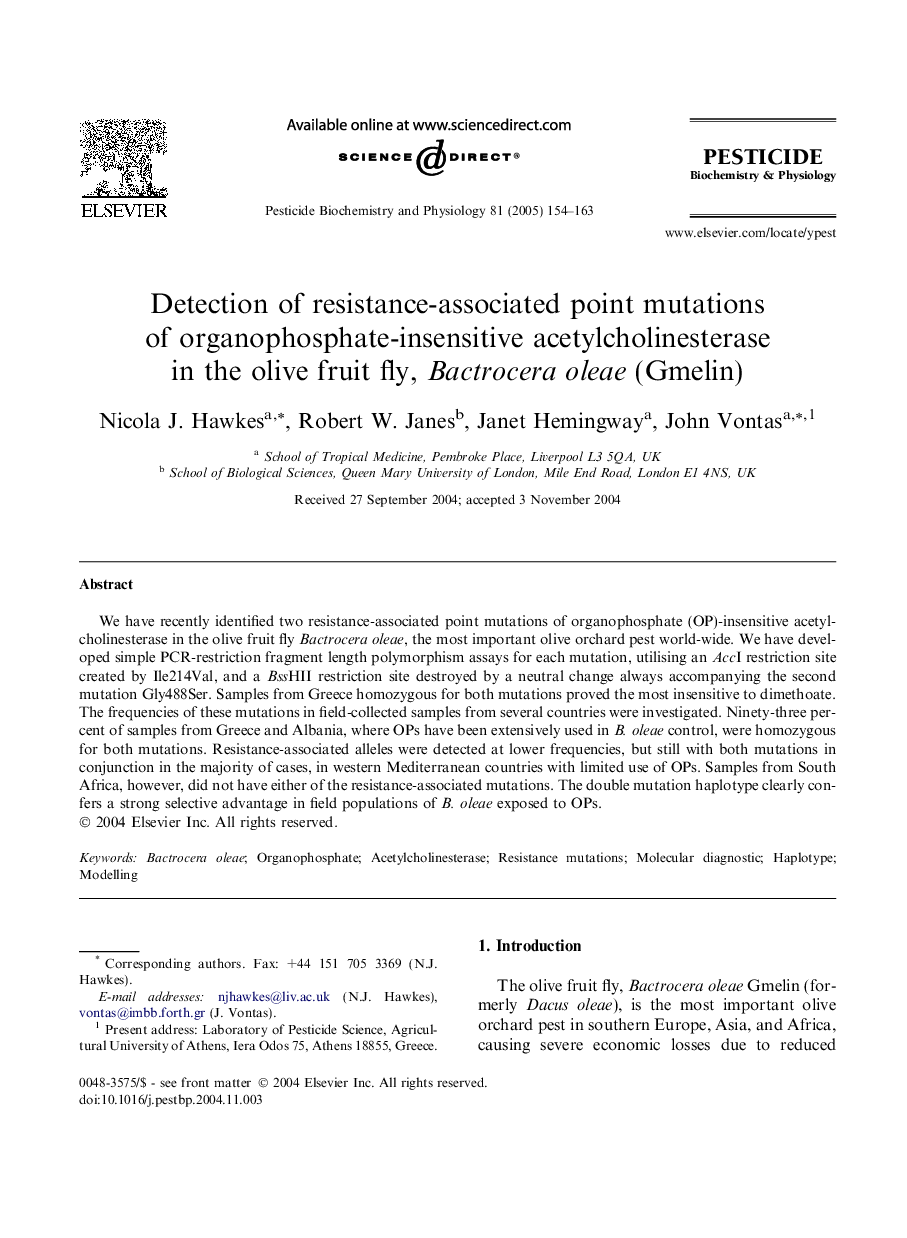| Article ID | Journal | Published Year | Pages | File Type |
|---|---|---|---|---|
| 10837641 | Pesticide Biochemistry and Physiology | 2005 | 10 Pages |
Abstract
We have recently identified two resistance-associated point mutations of organophosphate (OP)-insensitive acetylcholinesterase in the olive fruit fly Bactrocera oleae, the most important olive orchard pest world-wide. We have developed simple PCR-restriction fragment length polymorphism assays for each mutation, utilising an AccI restriction site created by Ile214Val, and a BssHII restriction site destroyed by a neutral change always accompanying the second mutation Gly488Ser. Samples from Greece homozygous for both mutations proved the most insensitive to dimethoate. The frequencies of these mutations in field-collected samples from several countries were investigated. Ninety-three percent of samples from Greece and Albania, where OPs have been extensively used in B. oleae control, were homozygous for both mutations. Resistance-associated alleles were detected at lower frequencies, but still with both mutations in conjunction in the majority of cases, in western Mediterranean countries with limited use of OPs. Samples from South Africa, however, did not have either of the resistance-associated mutations. The double mutation haplotype clearly confers a strong selective advantage in field populations of B. oleae exposed to OPs.
Keywords
Related Topics
Life Sciences
Agricultural and Biological Sciences
Agronomy and Crop Science
Authors
Nicola J. Hawkes, Robert W. Janes, Janet Hemingway, John Vontas,
